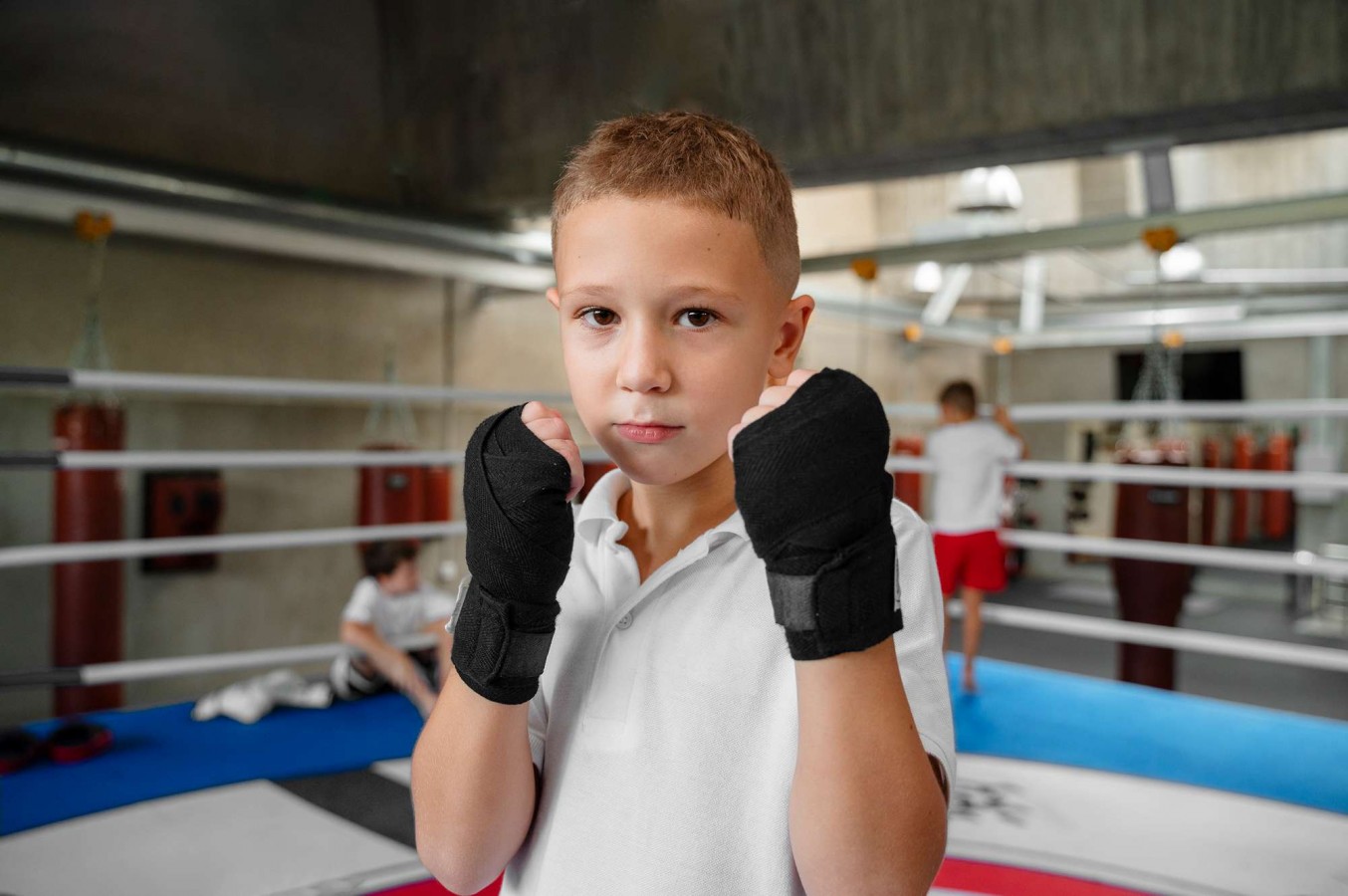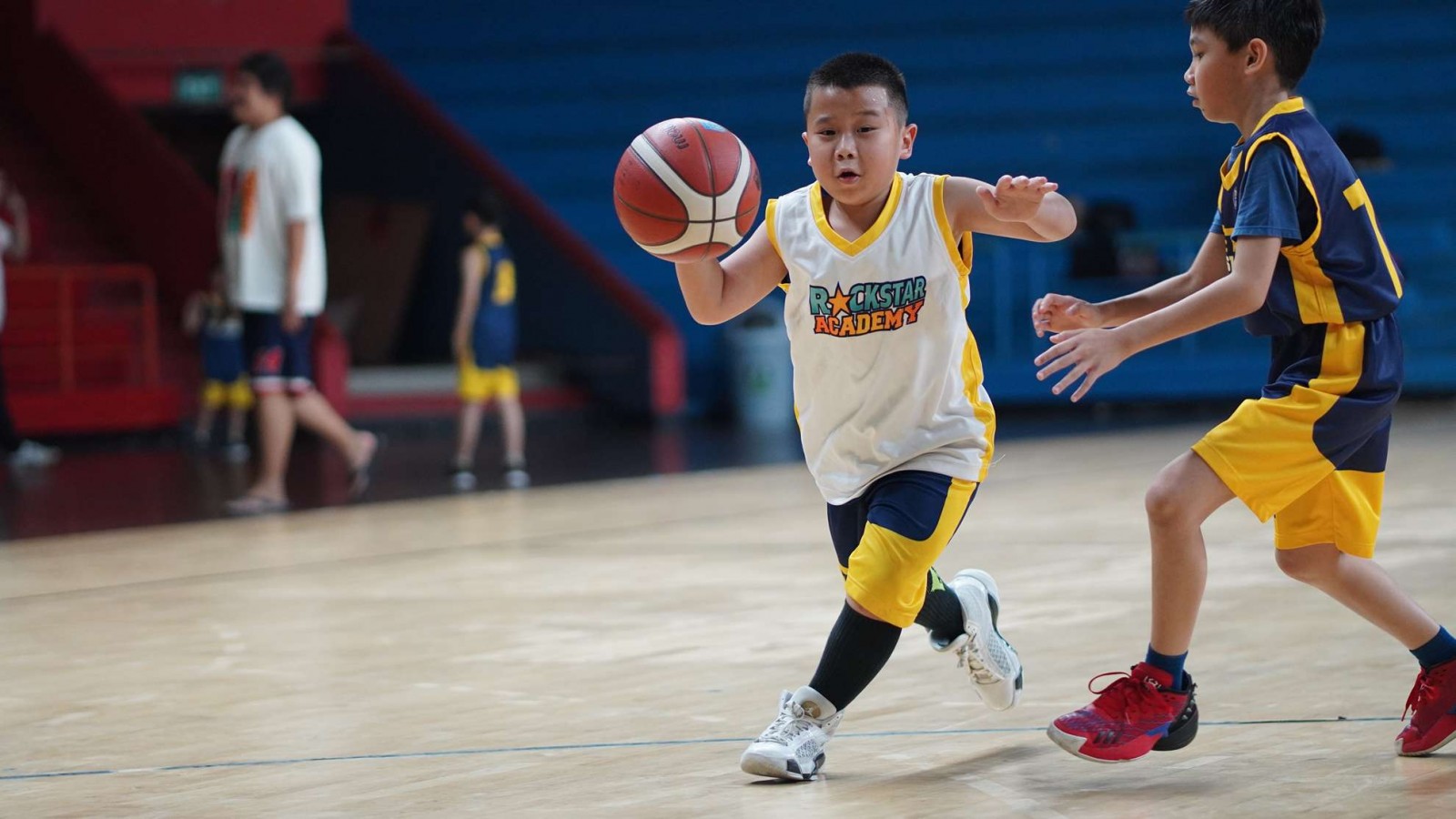Here's How You Can Teach Self-Defense For Kids

As a parent, nothing is more important than the safety and well-being of your children. In today's world, where uncertainties and dangers can lurk around any corner, it's crucial to equip your kids with the tools they need to protect themselves. One effective way to do this is by teaching them self-defense strategies tailored to their age and abilities.
In this guide, we'll explore what self-defense for kids entails, its benefits, and how you can effectively teach your children to defend themselves.
Understanding Self-Defense for Kids
Self-defense for kids is about more than just physical techniques, it's also about teaching them awareness, assertiveness, and confidence. At its core, self-defense empowers children to recognize potentially dangerous situations and respond appropriately to protect themselves.
Martial arts training provides a complete approach to self-defense for kids, encompassing not only physical techniques but also mental and emotional skills. By learning martial arts, children develop coordination, strength, flexibility, and agility, while also cultivating discipline, focus, and respect for themselves and others.
Benefits of Self-Defense for Kids
Self-defense training offers a wide range of benefits for children, extending far beyond physical techniques. Here's a detailed exploration of the various benefits of self-defense for kids:
A. Improved Confidence
One of the most notable benefits of self-defense training for kids is increased confidence. As children learn and master new techniques, they gain a sense of accomplishment and belief in their ability to protect themselves.
This confidence extends beyond physical self-defense and can positively impact other areas of their lives, such as academics, social interactions, and personal goals.
B. Enhanced Physical Fitness
Self-defense training involves physical activity that helps children improve their overall fitness level. Through activities like punching, kicking, blocking, and grappling, kids develop strength, agility, flexibility, and cardiovascular endurance. Regular practice also promotes healthy habits and encourages an active lifestyle.
C. Developed Discipline and Focus
Martial arts and self-defense training require discipline and focus, qualities that are instilled in children through structured practice and repetition. Following instructions, respecting instructors and peers, and maintaining concentration during training sessions all contribute to the development of discipline and focus in children.
D. Heightened Awareness and Safety Skills
Self-defense training teaches children to be aware of their surroundings and recognize potential threats. By learning to identify dangerous situations and assess risk factors, kids become better equipped to stay safe both indoors and outdoors.
Additionally, self-defense training instills safety principles and strategies that children can apply in various contexts, such as walking home from school or interacting with strangers.
E. Improved Self-Control and Emotional Regulation
Martial arts and self-defense training emphasize self-control and emotional regulation as essential components of effective self-defense. Children learn to manage their emotions, remain calm under pressure, and make rational decisions in stressful situations.
These skills not only enhance their ability to defend themselves physically but also promote mental well-being and resilience.
F. Enhanced Social Skills
Participating in self-defense classes provides children with opportunities to interact with peers and instructors in a structured and supportive environment. Working together on drills, practicing techniques with partners, and participating in group activities foster teamwork, communication, and cooperation skills.
G. Improved Problem-Solving Abilities
Self-defense training encourages children to think critically and creatively to overcome challenges and obstacles. Kids will manage to learn to assess situations, adapt to changing circumstances, and devise effective solutions.
These problem-solving abilities are valuable not only in self-defense scenarios but also in academic settings and real-life challenges.
H. Increased Self-Esteem and Empowerment
As children progress in their self-defense training and overcome obstacles, they develop a sense of self-esteem and empowerment. Knowing that they have the skills and knowledge to defend themselves instills a sense of self-worth and confidence in children, empowering them to assert themselves and navigate the world with resilience and determination.
How to Teach Your Kids Self-Defense
Teaching your kids self-defense requires a proactive and assertive approach. Here's how to effectively impart self-defense skills to your children:
1. Use an Assertive Voice
Teach your children to use a strong and assertive voice to communicate boundaries and assert themselves in potentially threatening situations. Practice assertive phrases such as "Stop!" or "Leave me alone!" to deter potential attackers and signal to others that they need help.
2. Take a Martial Arts Class
Enroll your kids in a reputable martial arts class like those offered at Rockstar Academy. Martial arts training provides a structured environment where children can learn self-defense techniques, develop physical fitness, and build confidence.
Experienced instructors will teach them how to defend themselves effectively while emphasizing discipline and respect.
3. Know Self-Defense Techniques
Ensure that your children learn basic self-defense techniques such as how to make a fist, execute strikes and kicks, and escape from grabs or holds. Practice these techniques regularly to build muscle memory and increase proficiency.
Encourage your kids to use their skills confidently and decisively if they ever encounter a threatening situation.
4. Yell and Scream
Teach your children the importance of using their voice as a powerful tool in self-defense. Instruct them to yell loudly and scream "Help!" or "Fire!" to attract attention and alert bystanders to the situation. This can startle potential attackers and increase the likelihood of intervention from others.
5. Attract Attention
Encourage your children to create as much noise and commotion as possible if they feel threatened. In addition to yelling and screaming, instruct them to use whistles, personal alarms, or other signaling devices to attract attention and deter attackers. The goal is to draw the focus away from the assailant and toward help.
6. Escape and Run
Teach your kids that their primary objective in a threatening situation is to escape safely. Encourage them to prioritize their own safety above all else and to run away from danger as quickly as possible. Emphasize the importance of knowing their surroundings and identifying escape routes in advance.
Ready to Teach Self-Defense For Your Kids?
Teaching your kids self-defense is one of the most valuable gifts you can give them. By enrolling them in a reputable martial arts program like those offered at Rockstar Academy, you can help them develop the skills, confidence, and awareness they need to stay safe in any situation.
As the premier Sports & Performing Arts Academy, Rockstar not only provides top-notch physical activity programs but also offers a comprehensive curriculum tailored to the needs of young learners. Events like the RockOlympics enrich their experience, fostering both skill development and camaraderie.
For those eager to explore this transformative journey, Rockstar Academy extends a warm invitation with a complimentary muay thai trial class. Take the first step in safeguarding your child's future by contacting Rockstar Academy today!
FAQ
At what age should I start teaching my child self-defense?
Children as young as three or four years old can begin learning basic self-defense and safety skills through age-appropriate martial arts programs.
Is martial arts training safe for children?
When taught by qualified instructors in a controlled environment, martial arts training is very safe for children. In fact, it can help prevent injuries by teaching proper technique and emphasizing safety protocols.
Will learning self-defense make my child more aggressive?
No, quite the opposite. Martial arts training emphasizes discipline, respect, and self-control, which can actually reduce aggressive behavior and improve conflict resolution skills.
How can I find a reputable martial arts program for my child?
Look for programs with experienced instructors who have a background in teaching children. Ask for recommendations from other parents or schedule a trial class to see if the program is a good fit for your child.



